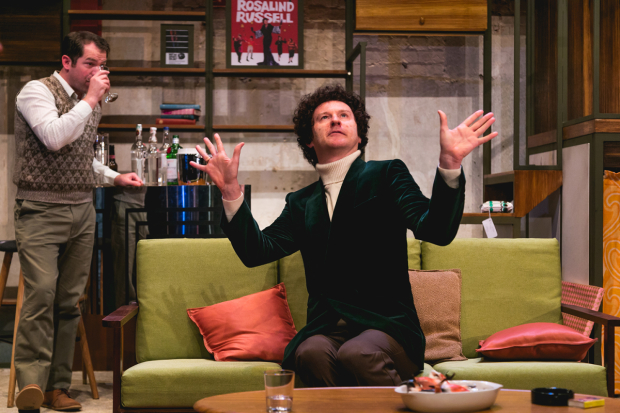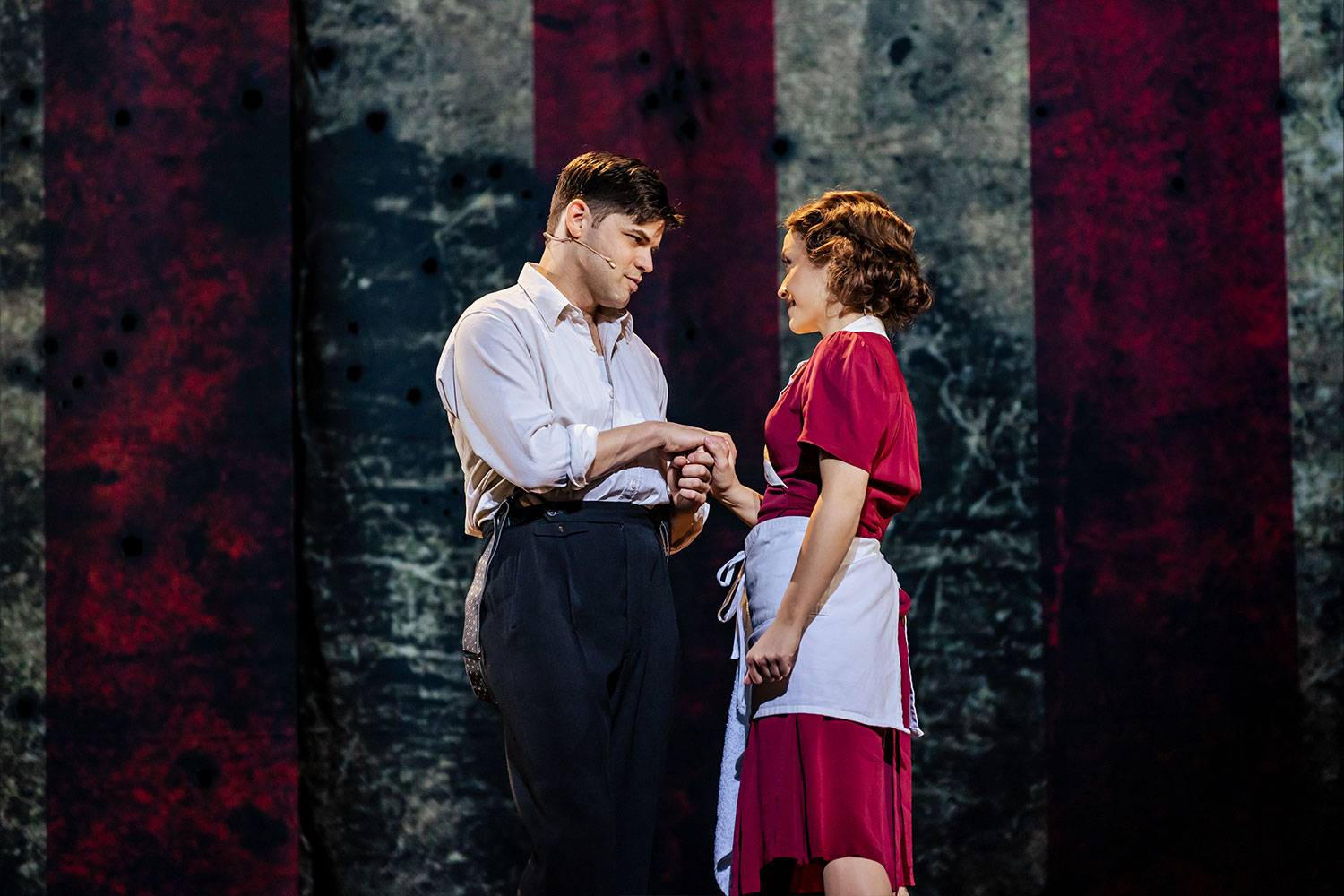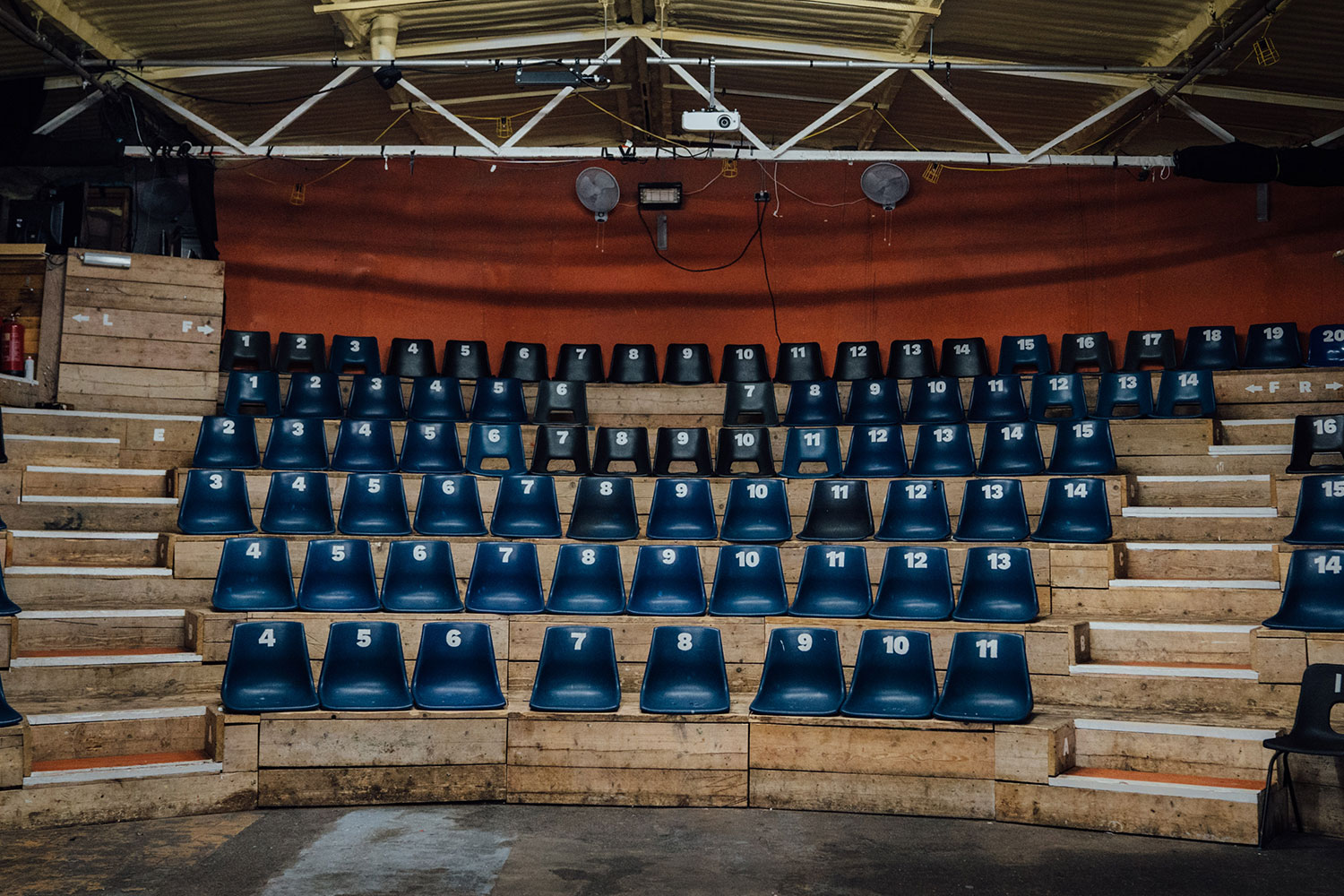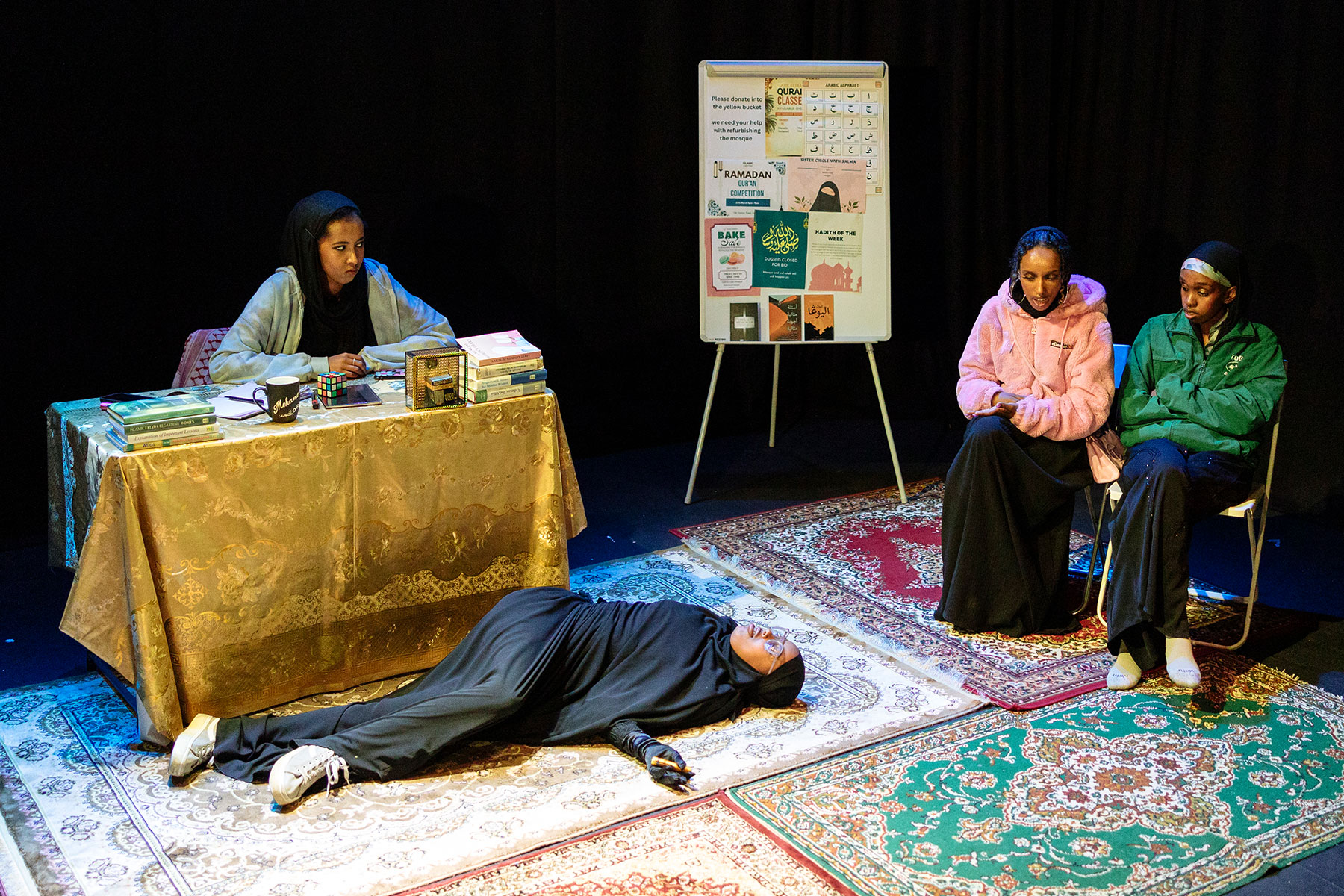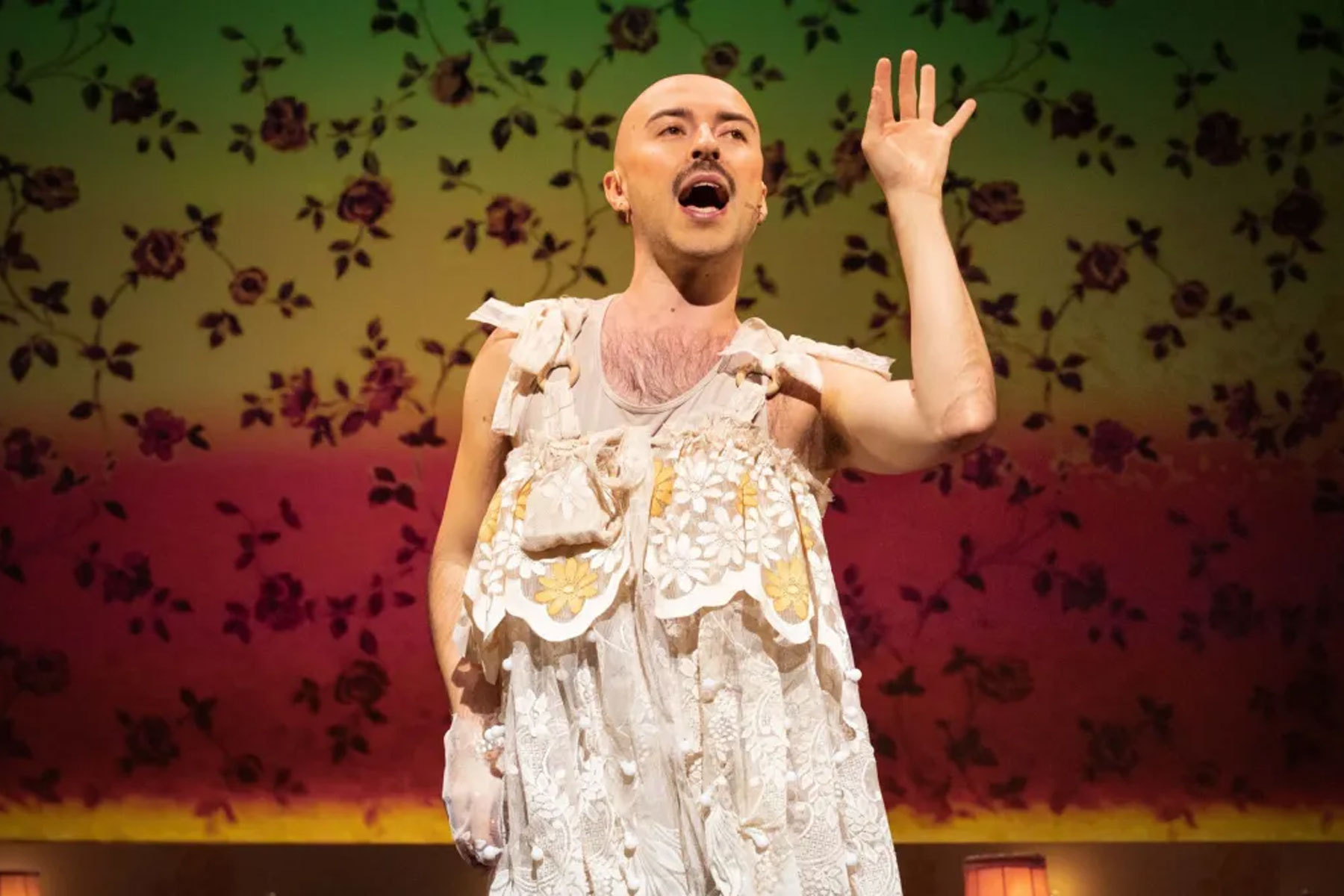Review: For Reasons That Remain Unclear (King's Head Theatre)
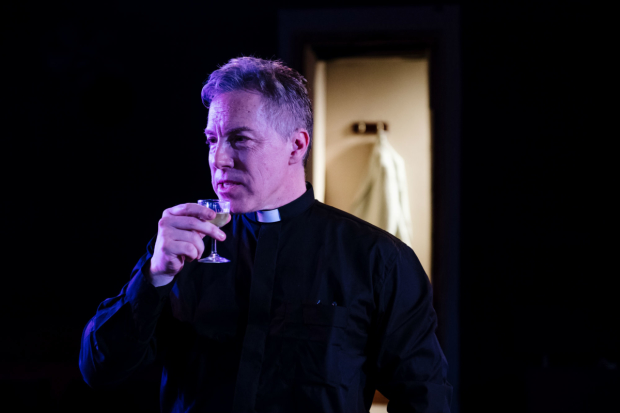
© Alex Brenner
Author Mart Crowley is known principally for the waspish but ground-breaking 1968 The Boys In The Band, currently in a glossy all-star Broadway revival, and which daringly (for its time) depicted a bunch of pre-legalisation gay men gathering for an emotionally toxic birthday party. For Reasons That Remain Unclear dates from 1993 and is here receiving its European premiere as the headliner of the Kings Head's Queer Season. It's a strange little play that seeks to explore forgiveness and variations of power in a luxurious Italianate setting but winds up reinforcing a dated and unhelpful conflation of homosexuality, child abuse and religion.
The somewhat contrived premise is that sexy Hollywood hot shot Patrick picks up a Catholic priest – also American – in a Rome street, takes him for a slap-up lunch and now here they are in a sumptuous hotel suite overlooking the Piazza di Spagna. The ambiguity of their connection and their expectations of each other are skilfully evoked in Jessica Lazar's shimmeringly sensual staging, and in the fine performances of Simon Haines and Cory Peterson. Mildly amusing, slightly suggestive wordplay ("I have no talent for languages. I put the sin in syntax", "Ah yes, amore. I suck up as much as I can") gives way to a number of unlikely revelations and recriminations. Without giving too much away, it ends up as a compulsive but predictable gay thriller, the added spices of religion and the memories of incest and abuse threatening to tip it into uncomfortably exploitative terrain.
It should be upsetting and provocative but Crowley's writing, though frequently witty, is too elegant and, alas, trite to really hit home. It's staggering that this was created a decade or so after Harvey Fierstein's Torch Song Trilogy which paid more than lip service to the difficulty and at times downright horror of being a gay person in unenlightened, unkind times, but also beamed out a message of hope, love, and the importance of family and longstanding connections. Here, however, Crowley offers only misery, solitude, guilt, illegal sexual liaisons… and cliché after cliché as the two apparent strangers reveal themselves to each other. The tired trope of drunkenness further loosens one of the character's tongues. Well of course it does.
Despite my reservations about the play itself, the production is well-nigh faultless. Amanda Mascarenhas has turned the entire auditorium and stage into Patrick's opulent hotel suite, complete with balcony overlooking the Piazza. It's the most original and successful use of this tricky space I've yet seen, lit with atmospheric panache by Clancy Flynn. Lazar's direction superbly maintains the focus and tension to a degree that makes the hackneyed script seem better than it is.
She is helped immeasurably in this by her excellent leading actors. Haines is mesmerising as smooth, unknowable movie exec Patrick, impossibly handsome and with a killer smile that is at once a come-on and an impenetrable barrier. Equally remarkable is Peterson as older, tentative Father Conrad who credibly and affectingly develops from piously ingratiating to a hollow-eyed husk, despite the shortcomings of the writing. They are a magnificent team.
While not every play one encounters can be as positive about homosexuality as, say, Jonathan Harvey's Beautiful Thing, and nobody can pretend that gay life is still easy for many people, it is dismaying to see such a defiantly nihilistic yet clumsy piece in this day and age. I am not saying for a moment that difficult and disturbing subject matter has no place in drama, but it would be nice to see it treated in a less hysterical, more measured way than it is here. Aside from the author's moderately high profile, the reasons why such a sensationalist, divisive piece as this should be the highlight of a Queer Season in 2018 really do remain unclear. This is a three star review as it's a four star production of a two star play.




